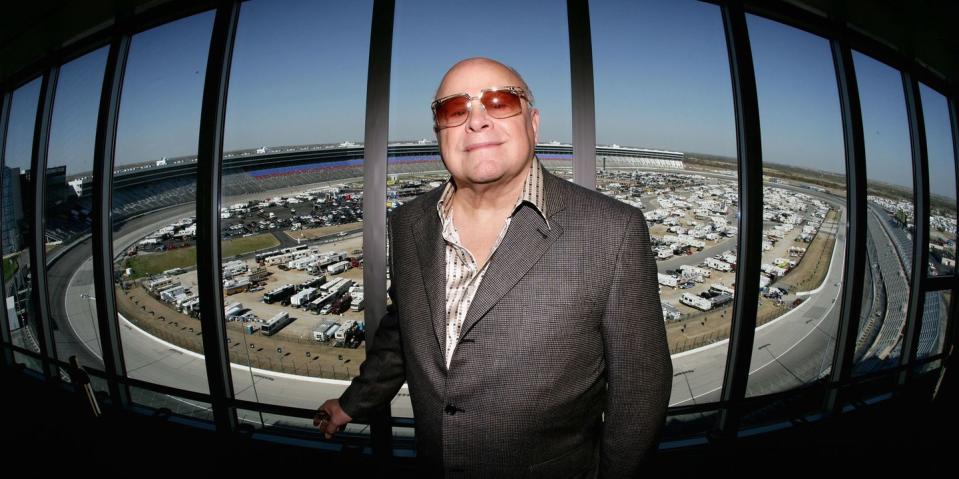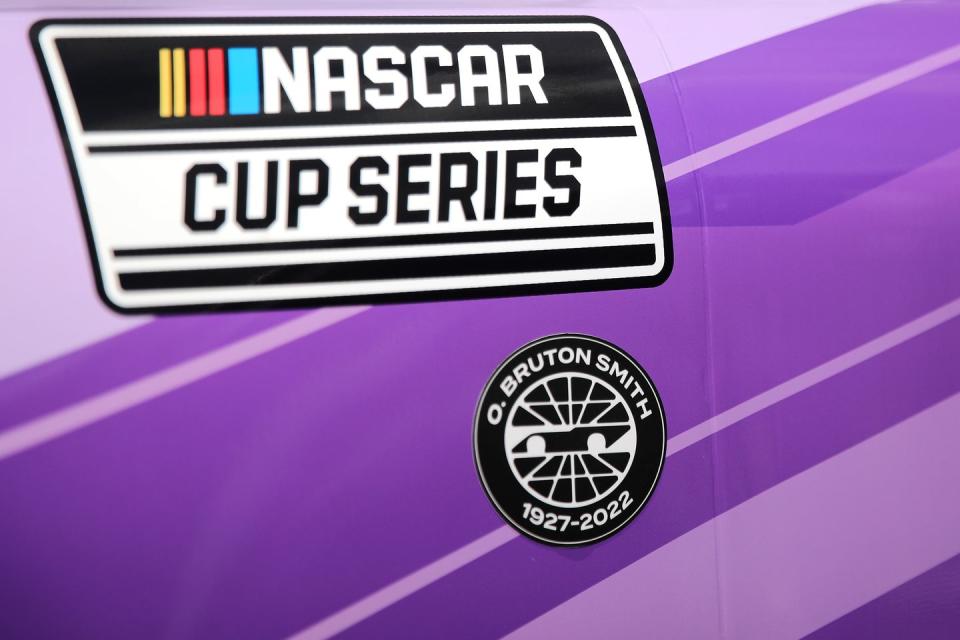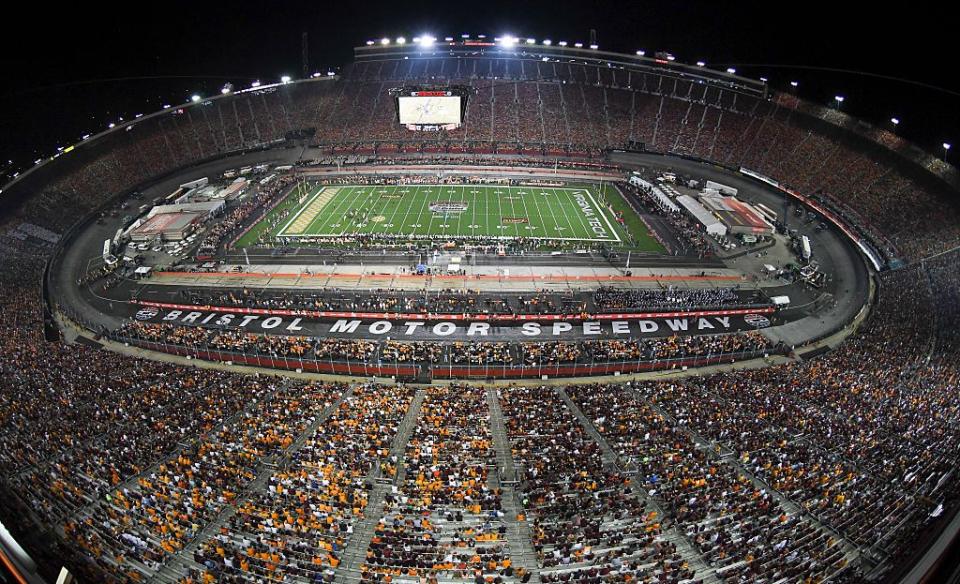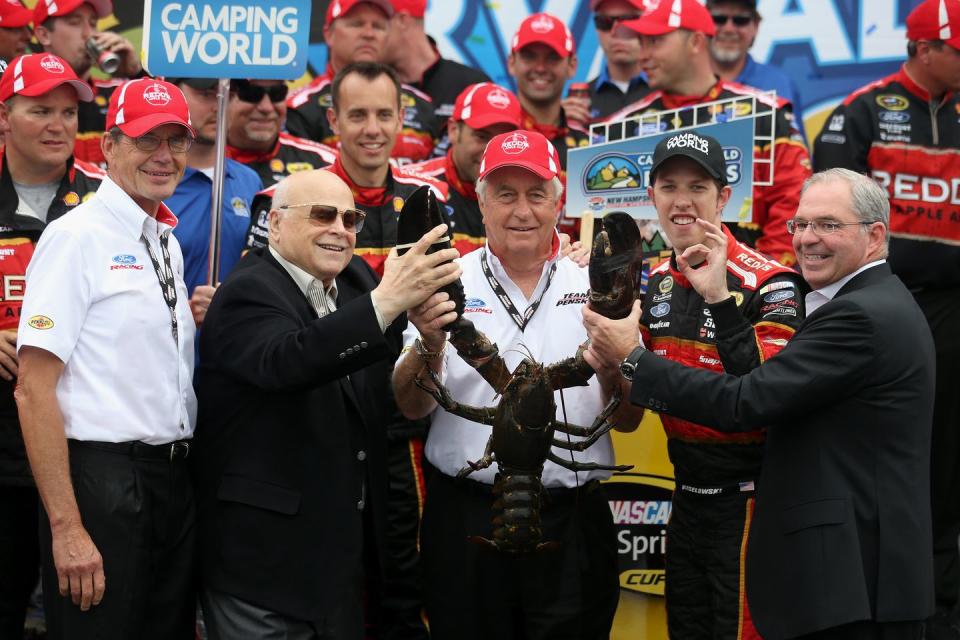Bruton Smith's NASCAR Legacy Is So Much More than Charlotte Motor Speedway

Bruton Smith, who died June 22 at the age of 95, was the very definition of a tycoon, a self-made man who took wild swings in life.
Perhaps the most audacious thing in a very long list of audacious things Smith did was decide to hold the first 600-mile race in NASCAR history.
Smith rose from stark poverty on an Oakboro, N.C. farm to riches beyond his dreams.
Bruton Smith will be laid to rest Thursday in his native North Carolina, his legacy as one of the most impactful sports figures in the state and in international motorsports secure.
Smith, who died June 22 at the age of 95, did audacious things. He was the very definition of a tycoon, a self-made man who took wild swings in life and, more often than not, hit home runs. He wasn’t afraid to challenge the status quo, standard thinking or those who might take the considerable risk of testing him.
Perhaps the most audacious thing in a very long list of audacious things Smith did was decide to hold the first 600-mile race in NASCAR history. This epic event occurred in June 1960 at the opening of Charlotte Motor Speedway.

The first World 600 was scheduled only 10 years after NASCAR’s top series raced for the first time on asphalt—at then-new Darlington Raceway in South Carolina. That was the first 500-mile race in NASCAR history, and Smith, looking to add shine to the first race at his new track, chose to go to another level.
The race drew a big swath of publicity, but it was something less than marvelous. Chunks of the track’s fresh asphalt came up during the race, and teams added screens to the front of their cars to protect the radiator and engine.
It became the marathon of marathons. Jack Smith, a NASCAR pioneer driver from Spartanburg, S.C., had the race won until debris caused a rupture in his gas tank in the closing laps. His crew tried to plug the leak with numerous items, including a bar of soap, but nothing worked. Smith wept as what would have been a signature win disappeared.
Joe Lee Johnson won the race, one of only two Cup victories in his short career.
Smith lost the Charlotte track because of a web of financial problems, but he returned to take over CMS in the 1970s, eventually turning it into one of auto racing’s palaces.
More audaciousness.
• Smith built condominiums at CMS and duplicated that surprisingly successful idea at other tracks.

• He bought Bristol Motor Speedway and increased its seating to 160,000, creating an artificial mountain near the real Appalachians.
• He scheduled a college football game at Bristol and hosted a crowd bigger than any other to watch college teams play.
• He built a massive speedway on the Texas prairie and turned it into a success despite a controversial opening race (remember Charlotte’s opener?).
• He built state-of-the-art dragways.
• He threatened to vacate Charlotte Motor Speedway when local officials disagreed with his plans. He won that battle.

• He went toe-to-toe with various members of the NASCAR-founding France family and, on at least one occasion, talked of leaving NASCAR and making his tracks part of a new stock car racing series.
In the late 1990s, with NASCAR’s growth on an explosive curve and speedways welcoming sellout crowds, Smith suggested splitting the Cup Series into two traveling units. “We would have an American League and a National League,” he said. “That would be a giant step, and we would all suffer a little for a while if we did that. But we have tens of thousands of race drivers in this country. We don’t know how good they are until you give them some seat time. There might be some drivers out there who would turn out to be better than anything we’ve ever seen.”
That plan was a rarity—a Smith idea that didn’t work out.
But he rose from stark poverty on an Oakboro, N.C. farm to riches beyond his dreams. Even in his later years, when others were running his motorsports empire and his chain of car dealerships, he still had a foot in the door and an idea on the brain.

 Yahoo Autos
Yahoo Autos